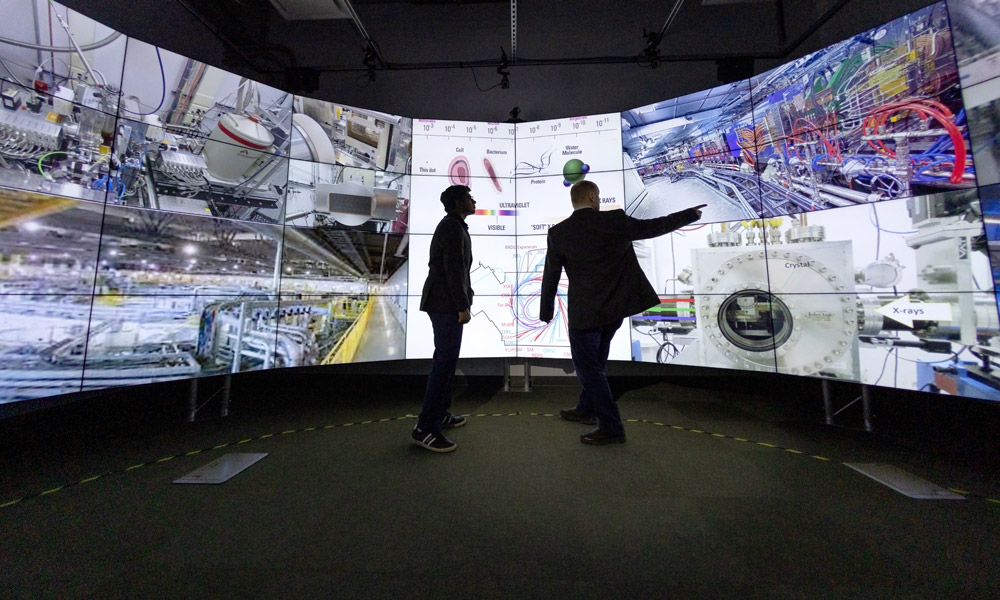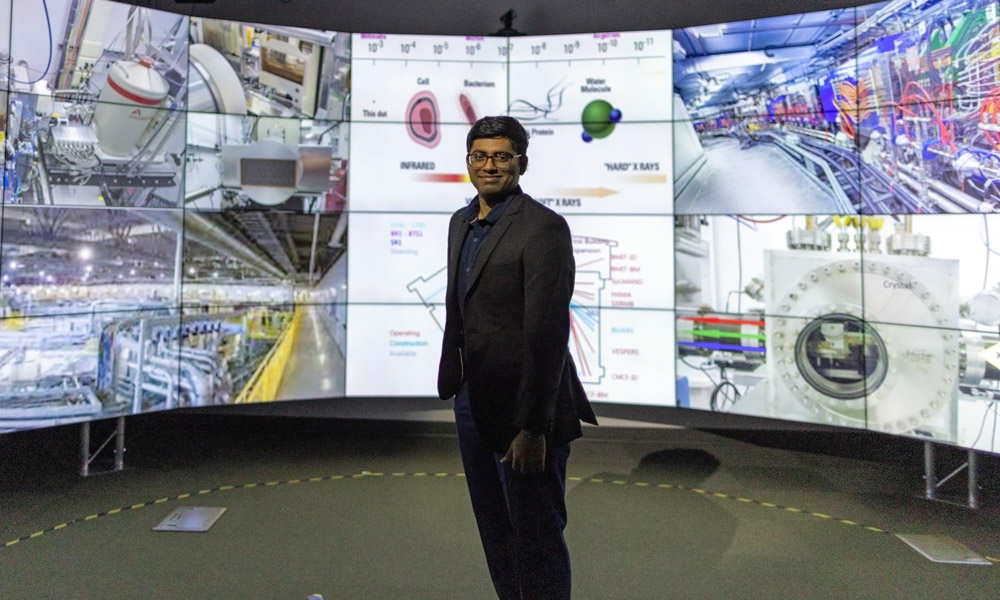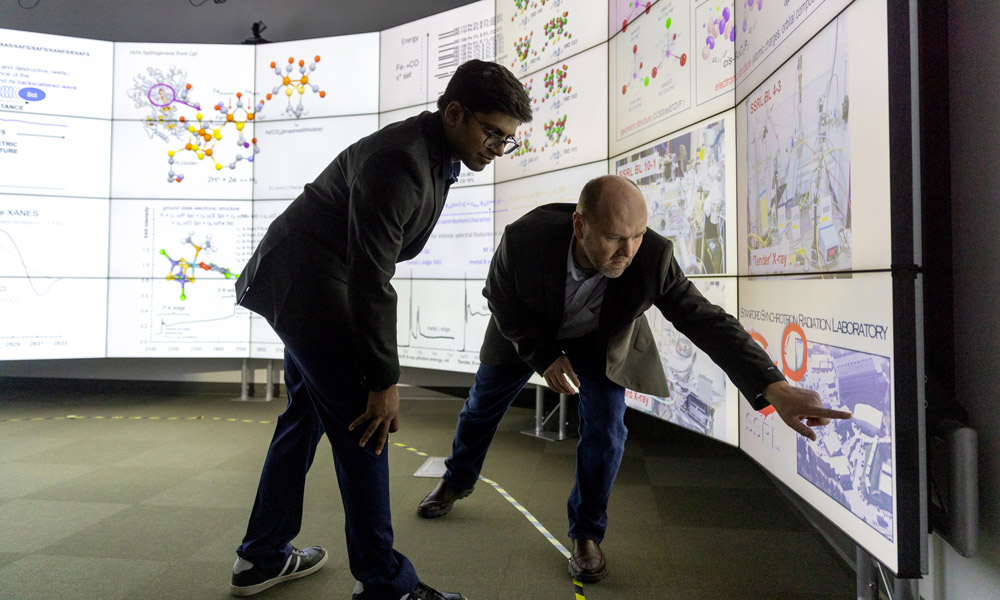
A CHANCE ENCOUNTER AT A UBC OKANAGAN COFFEE SHOP while visiting a friend changed Bhavesh Gnnanapareddy’s academic trajectory.
The international student, who was studying for his undergraduate degree in physics in India, was visiting Dr. Gino DiLabio’s research group at UBCO as part of a Mitacs Globalink Research Internship. While attending his friend’s graduation, his group bumped into Dr. Robert Szilagyi at a campus coffee shop and struck up a conversation about their shared research interests.
“My friend worked with Dr. Szilagyi, so we started talking about their research in experimental and theoretical chemistry,” explains Gnnanapareddy. “I was interested in what he was doing, so I read a couple of his papers. I eventually asked if I could do my final year project with him, since I had the opportunity to do it internationally as part of my program.”
Gnnanapareddy’s route to Canada—and UBCO—came via the university’s Visiting International Research Students’ (VIRS) program, which admits international students to UBC to conduct research full-time under the supervision of a faculty member.
Since 2014, UBC has welcomed over 2,500 VIRS students from over 650 universities and 85 different countries. The program was adapted to the Okanagan campus in 2018 and has seen 286 students attend so far. The VIRS program includes students in their undergrad, master’s and doctoral studies who wish to enhance their research skills at UBC.
“VIRS is an ideal pathway for amazing research-focused students to come to UBCO and complement their degree at home,” explains Dr. Dana Lowton, Assistant Director of UBCO’s GoGlobal. “Students like Bhavesh are a perfect example of why we have these unique research pathways.”

Bhavesh Gnnanapareddy.
Eager to get a head start on his project, Gnnanapareddy arranged weekly meetings with Dr. Szilagyi in the lead-up to his arrival in Canada. The pair met online for two hours per week for four months; the 13-hour time difference between Kelowna, BC, and Hyderabad, India, didn’t bother either of them.
“We reviewed case studies and read papers,” says Dr. Szilagyi. “I gave Bhavesh data and programs to play with, so he could manipulate the data sets. He was already exposed to this during his Mitacs internship, so I helped him further pursue that direction of study. By the end of the four months, Bhavesh reached a point where he had a rough outline for a potential scientific publication.”
Dr. Szilagyi says VIRS can jumpstart an international student’s graduate research career while benefiting professors as well. “VIRS has allowed me to have Bhavesh in my lab before he even decides to pursue a master’s degree, so he can get to know me and my group. In general, being involved in undergraduate research allows students to customize their education and training, since they have the freedom to choose their research advisors.
“This is rarely the case for course instructors—even at a medium-sized post-secondary institution in Canada like UBC Okanagan.”
Undergraduate research gives students the chance to better personalize and customize their education, he adds. “Students can choose their professor and spend their available time doing research; if they don’t like that lab or didn’t learn enough, they can reach out to another professor or collaborative research project. Once you’re in graduate school, the stakes are much higher and that kind of flexibility isn’t there.”

Bhavesh Gnnanapareddy and Dr. Robert Szilagyi at UBCO’s Visualization and Emerging Media Studio.
Gnnanapareddy agrees. “I would highly recommend students get involved in undergraduate research as soon as they can. Just like research in a master’s degree is the foundation for a doctorate, completing good undergraduate research will be useful if you decide to study further.”
Already impressed by his experience with Dr. DiLabio during his Mitacs internship—which focused on theoretical and computational chemistry research—combined with his experimental work with Dr. Szilagyi, Gnnanapareddy decided to apply for UBCO’s Master of Science in Chemistry.
“I love doing research; I knew I wanted to do research since the ninth or tenth grade,” he says. “I liked how UBCO’s master’s programs are so research-oriented, and having already worked with Dr. DiLabio and Dr. Szilagyi, I knew what to expect here.”
Gnnanapareddy was accepted into the program just as he arrived in Canada to complete his final year project through VIRS; he will work with both Dr. DiLabio and Dr. Szilagyi, combining theoretical and experimental work to expand on his previous research.
“I’m located on this beautiful campus, I’ve received a Mitacs scholarship and funding from UBCO, and I’m working on something I’m passionate about,” Gnnanapareddy says. “It can’t get much better than this, and it all started with a random, funny meeting.”